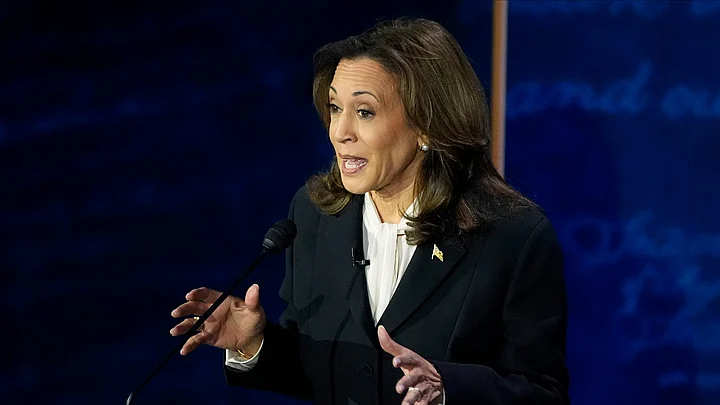Partisan views aside, there is little question that Vice-President Kamala Harris was the clear-cut winner of the presidential debate against former President Donald Trump. This is more than evident from Trump’s unwillingness to participate in a third debate.
For all his public bravado and bombast, he must realise that his performance was sub-par. Even his staunch supporters, such as Senator Lindsay Graham of South Carolina have expressed their dismay over his showing at the debate.
That said, his core constituency is unlikely to be swayed one way or another: they have long made up their minds about him and they will not waver in their support for him.
Contrary to popular belief, the first televised presidential debate was not between John F Kennedy and Richard M Nixon in 1960. Instead, it was in 1956 between two presidential surrogates, Eleanor Roosevelt (the widow of Franklin D. Roosevelt) and Margaret Chase Smith of Maine. Roosevelt spoke on behalf of Adlai Stevenson, the Democratic nominee, and Chase Smith on behalf of Dwight Eisenhower, the Republican nominee for the presidency.
Since the better-remembered Kennedy-Nixon debate, they have become a staple of American political life. Millions of viewers routinely turn to their television sets to watch these events. All other factors considered; a poor debate performance can doom a candidate’s presidential prospects. For example, Democratic presidential candidate, Al Gore’s sighing during his debate with George W. Bush, was widely seen as arrogant and, in part, hurt his campaign.
After considerable wrangling over their terms of engagement, Harris and Trump finally agreed to a debate on the American Broadcasting Corporation (ABC) network. Held on 10 September in Philadelphia, the debate, quite predictably, proved to be acrimonious. Both Harris and Trump were pugnacious albeit in markedly different ways.
Trump, as many of his advisers had feared, was not merely combative. Instead, he failed to forthrightly answer questions, had few policy ideas to offer and, above all, resorted to a passel of outright lies. The last, sadly, was not his most egregious transgression.
Among other matters, he repeated a base canard that his running mate, J D Vance, has popularised, namely that Haitian immigrants in the town of Springfield, Ohio have been stealing, killing and eating pet cats and dogs. It is, of course true, that many Haitians fleeing widespread strife and violence in their homeland have taken refuge, both legally and illegally, in the United States.
Springfield, a town that had seen significant industrial decline and population loss, benefited from the influx of these immigrants. They have proven to be industrious; they have reversed the population decline and they have not, polemical assertions aside, become wards of the state. And, for a certainty, they are not prone to trapping and eating domesticated animals.
This, however, was not the only falsehood that Trump trotted out during the debate. On the very fraught issue of abortion rights, he made a statement that was palpably false and worse. Specifically, he asserted that in some Democrat-run states, not only were abortions rampant but that infanticide was permissible.
Bluntly speaking, this assertion was nothing short of absurd. Infanticide in the United States is a punishable offence and there is not a shred of evidence that any state, regardless of its political complexion, has permitted this horrific and abhorrent practice. Nevertheless, when Harris confronted him on this baseless claim he refused to back down.
Even when he was not making bizarre assertions, he undermined his own positions. For example, he legitimately dwelt on the issue of persistent inflation, a matter of grave concern to significant segments of the electorate. However, barring an insistence on imposing tariffs on a host of countries and their products, he offered no practical, viable policy options for curbing inflation.
Harris, to her credit swiftly, countered him highlighting that most economists believe that the tariffs that Trump has in mind would do more harm than good to the American consumer. The only issue that might quibble about was her claim that his proposed tariffs would impose as much as a 20 percent tax on consumers.
On foreign policy issues his views were equally incoherent. He asserted, without any credible evidence, that Russia would not have invaded Ukraine had he been in office. This claim, of course, is not subject to confirmation or refutation. We have no way of ascertaining how President Putin would have acted had he been at the helm of affairs.
That matter aside, he also claimed that given the Biden-Harris administration’s foreign policy choices, there was a real possibility the world might see the onset of a third World War. While repeating this apocalyptic assertion, he failed to identify how such an outcome was likely.
Again, while attempting to underscore a genuine policy lapse on the part of the Biden-Harris administration, the haphazard American withdrawal from Afghanistan, his propensity for bombast and fecklessness again came to the fore, thereby undermining his critique.
He stated that the United States had left behind $85 billion worth of military equipment. The actual figure is closer to $7 billion.
Debate performances, obviously, can have consequences for electoral outcomes, especially at the margins. Undecided voters, who Harris was courting, may well have moved to her column.
However, at this juncture, given the unprecedented polarised state of American politics, it is unclear whether her upstaging of Trump in the debate will provide her with an unhindered path to victory in November.
(Sumit Ganguly is a Senior Fellow and directs the Huntington Program on US-India Relations at the Hoover Institution, Stanford University. This is an opinion piece and the views expressed are the author’s own. The Quint neither endorses nor is responsible for them.)
(At The Quint, we question everything. Play an active role in shaping our journalism by becoming a member today.)
